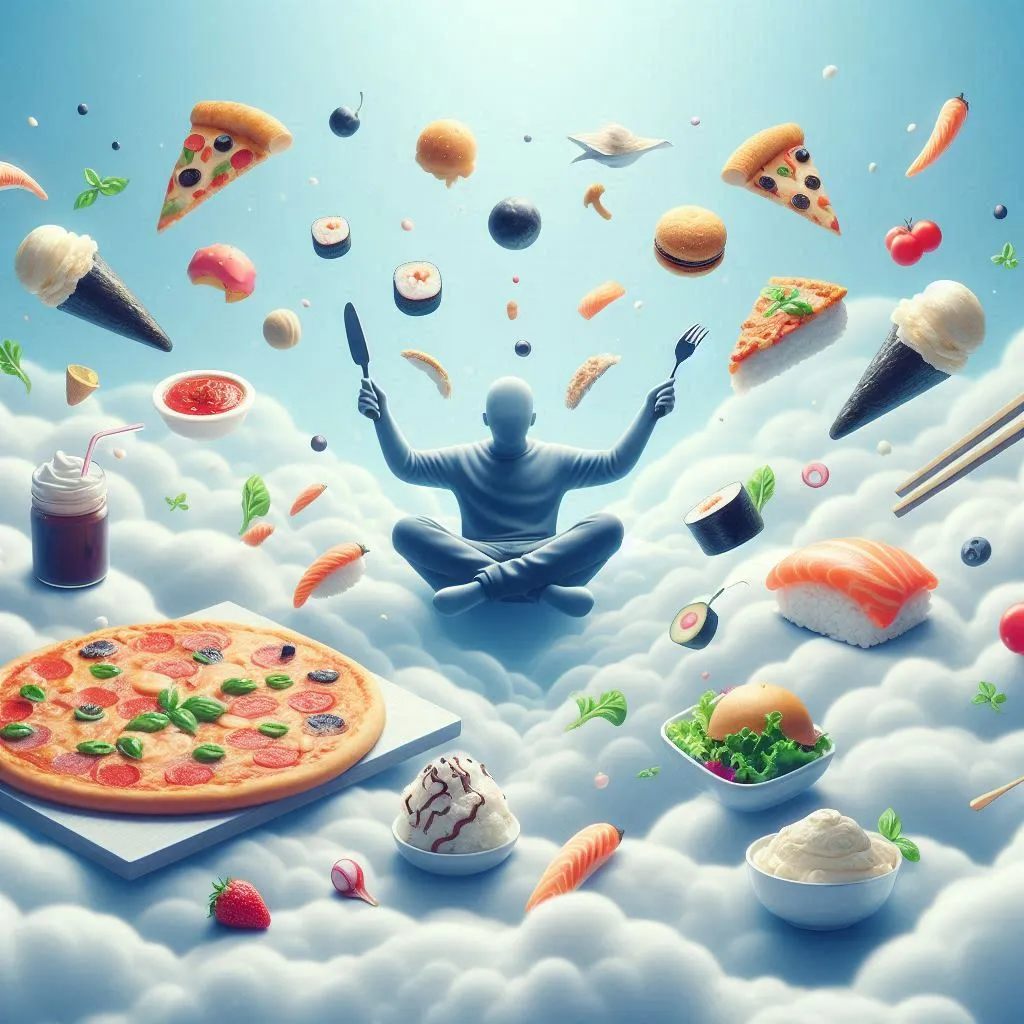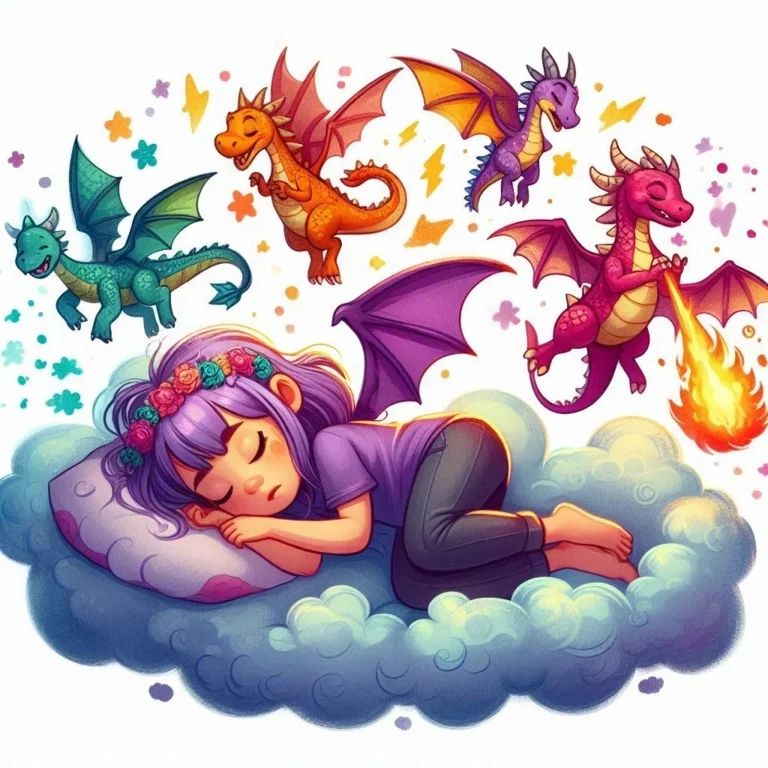6 Hidden Meanings & Symbolism of Eating in Dreams
You’ve had those dreams – the ones where you’re savoring a juicy burger or indulging in a decadent chocolate cake. But what’s behind these nocturnal feasts? Your subconscious is trying to tell you something, and it’s not just about food.
The flavors, textures, and aromas in your dreams hold symbolic meaning, hinting at emotional cravings, yearning for satisfaction, or a cry for comfort.
As you explore the world of dreams about eating, you’ll discover that these seemingly trivial episodes can reveal hidden patterns and desires shaping your waking life – if you’re willing to listen to what your subconscious is saying.
Dream About Eating Meanings In a Nutshell
- Dreams about eating symbolize unfulfilled desires and hidden cravings in waking life, revealing cultural significance and inherited values.
- The type of food in your dream can represent emotional cravings, yearning for satisfaction, comfort, love, and security from childhood memories.
- Lavish feasts in dreams signify a longing for connection and belonging, while exotic dishes represent a desire for adventure and exploration.
- The brain processes and consolidates memories of past dining experiences, associating emotions with specific foods, making them memorable and influential on cravings.
Unraveling the Symbolism of Food
As you plunge into the domain of your subconscious, where the boundaries of reality blur, the food that tantalizes your taste buds in your dreams may symbolize the unfulfilled desires and hidden cravings of your waking life, waiting to be devoured and digested.
These culinary fantasies can reveal the cultural significance of food in your life, reflecting the values and norms you’ve inherited from your family and community.
Perhaps the lavish feast in your dream represents a longing for connection and belonging, echoing the social rituals of sharing meals with loved ones.
Or maybe the exotic dish you’re craving symbolizes a desire for adventure and exploration, much like the cultural exchange that occurs when we break bread with others.

Emotional Cravings and Satisfaction
In the secret chambers of your mind, your dreams of devouring certain foods may be a manifestation of your emotional cravings, yearning for satisfaction in areas where you feel deprived or unfulfilled in your waking life.
These cravings can be a cry for comfort, a desperate attempt to fill the emotional voids that linger within. Comfort foods, in particular, hold a special significance, as they often evoke memories of warmth, love, and security.
When you find yourself dreaming of indulging in these treats, it may be your mind’s way of telling you that you’re craving a sense of belonging or acceptance.
Perhaps you’re feeling left out or overlooked in your personal or professional life, and your subconscious is seeking solace in the familiar comforts of childhood.
By acknowledging and addressing these emotional cravings, you can begin to heal the voids that are driving your desires.
As you work to fulfill these emotional needs, you may find that your dreams of devouring certain foods begin to fade, replaced by a deeper sense of satisfaction and contentment.
Brain Processing and Memory
How do your brain’s neural pathways, like a skilled chef, carefully season and serve up memories of past dining experiences, influencing the menu of your dreams and cravings?
As you sleep, your brain enters various stages, each playing a vital role in processing and consolidating memories. During the REM stage, your neural pathways are most active, revisiting and refining the flavors, textures, and aromas of past meals.
Emotional encoding: Your brain associates emotions with specific foods, making them more memorable and tempting in your dreams.
Sensory consolidation: Your neural pathways strengthen connections between sensory experiences, like the smell of freshly baked cookies or the taste of a warm summer day.
Pattern recognition: Your brain recognizes patterns in your eating habits, influencing your cravings and preferences in both waking and dreaming life.
As your brain weaves together these threads of memory, it creates a rich tapestry of culinary experiences that can manifest in your dreams. By understanding how your brain processes and stores memories of food, you can better appreciate the intricate dance between your neural pathways, sleep stages, and the menu of your dreams.

Hidden Messages From the Subconscious
Your dreams about eating often conceal subtle cues from your subconscious, whispering secrets about your desires, anxieties, and unresolved emotions through the menu of your nocturnal culinary adventures.
These nocturnal feasts can be a reflection of your subconscious desires, revealing hidden cravings and unmet needs. Perhaps you’re devouring sweet treats, symbolizing a deep-seated longing for comfort and security.
Or maybe you’re struggling to swallow a bitter meal, indicating inner conflicts and unresolved emotions.
As you navigate the labyrinth of your dreams, pay attention to the flavors, textures, and aromas that emerge.
Are you indulging in rich, decadent foods, hinting at a desire for luxury and pampering?
Or are you forced to eat something repulsive, revealing a sense of obligation or duty?
Your subconscious is speaking to you through these culinary metaphors, urging you to confront and resolve the underlying issues.
Food as a Representation of Love
Through the universal language of food, your subconscious weaves a tapestry of love, with every morsel and bite serving as a tangible representation of the affection, care, and nurturing you crave or attempt to provide for yourself and others. In your dreams, food symbolizes the emotional nourishment you need to feel seen, heard, and loved. It’s a reflection of your deep-seated desire for connection and belonging.
Food also holds a special place in your cultural heritage, evoking memories of family gatherings, traditions, and celebrations. The aromas, flavors, and textures of certain dishes can transport you back to a time and place where you felt safe, loved, and accepted.
Food represents love in your dreams in three ways:
- Comfort foods: Representing a desire for emotional comfort and security.
- Feasting and abundance: Symbolizing a sense of celebration, joy, and connection with others.
- Cooking for others: Indicating a need to nurture and care for others, or a desire to receive care and attention from them.
Deciphering Your Personal Symbols
As you unpack the symbolism of food in your dreams, you begin to uncover a personalized lexicon of love, where each ingredient, dish, and meal holds a distinct significance that’s unique to your experiences and emotions.
This symbolic language is tailored to your psyche, revealing hidden patterns and desires that shape your waking life.
By deciphering these personal symbols, you’ll gain a deeper understanding of your inner world, opening the gates to personal growth and self-awareness.
Notice how certain foods evoke emotions, memories, or sensations within you.
Maybe the smell of freshly baked cookies transports you back to your childhood, or a warm bowl of soup comforts you on a chilly day.
These associations hold the key to accessing your subconscious, revealing what nourishes your soul and what leaves you feeling empty.
As you explore this symbolic language, you’ll develop a richer understanding of your desires, fears, and motivations, allowing you to make more informed choices that align with your true self.
Frequently Asked Questions
Can Recurring Food Dreams Indicate Underlying Health Issues?
As you navigate the subconscious domain, recurring food dreams may be whispering secrets about your body’s hidden needs, hinting at nutrient deficiencies and listening to your gut instincts, urging you to tune in to your inner wisdom for a deeper sense of belonging.
Do Dreams About Eating Always Have a Symbolic Meaning?
You wonder if every dream holds a hidden message. Sometimes, yes, they do, but not always. Dreams about eating can symbolize your quest for emotional fulfillment and personal growth, revealing desires for nurturing and self-care.
Can Food Cravings in Dreams Be Influenced by External Factors?
You’re curious about whether external factors sway your cravings in dreams. Yes, they can! Sensory triggers, like scents or sounds, and personal associations, like emotional experiences, can seep into your subconscious, shaping your dreamtime desires.
Are Dreams About Eating More Common in Certain Age Groups?
As you navigate life’s journey, you’ll find that certain age groups, like the elderly, often reminisce about past flavors, sparking a nostalgia that whets their generational appetite, making them more prone to vivid, hunger-driven dreamscapes.
Can Lucid Dreaming Help Control Food Choices in Dreams?
As you explore lucid dreaming, you’ll discover it’s a powerful tool to harness your subconscious. By practicing dream journaling and mindful eating, you’ll become more attuned to your cravings, making healthier choices in both dreamscapes and reality.

Hi, I’m Aurelia Starfrost, your spiritual guide at InsightfulSpiritual.com. I love exploring ancient wisdom and modern practices to help you on your journey. With a focus on meditation and energy healing, I’m here to guide you to find solace within and discover your spiritual essence.







